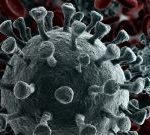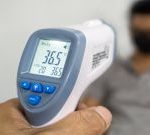
With President Donald Trump threatening to cut federal funding for schools that do not fully reopen in the fall, the United States set yet another record for new coronavirus cases on Wednesday with more than 59,000 new infections reported. It was the fifth national record in nine days, according to The New York Times. At least five states — Missouri, Tennessee, Texas, Utah and West Virginia — also set single-day records for new cases on Wednesday. Twenty-four states have reported more cases over the past week than in any other seven-day stretch of the pandemic, the newspaper added. The latest case numbers prompted Dr. Anthony Fauci to tell the Wall Street Journal on Wednesday that lockdowns might be wise in some spots. “Any state that is having a serious problem, that state should seriously look at shutting down,” he said. Meanwhile, medical centers across the country continued to face alarming shortages of respirator masks, isolation gowns and disposable gloves, all of which protect health workers from infection, the Times reported. On Tuesday, Trump spent the day pressuring governors, mayors and other local officials to reopen schools during a day of conference calls and public events at the White House, the Times reported. On Wednesday, he also pressured the U.S. Centers for Disease Control and Prevention to loosen its long awaited reopening guidelines for schools, the… read on >

















